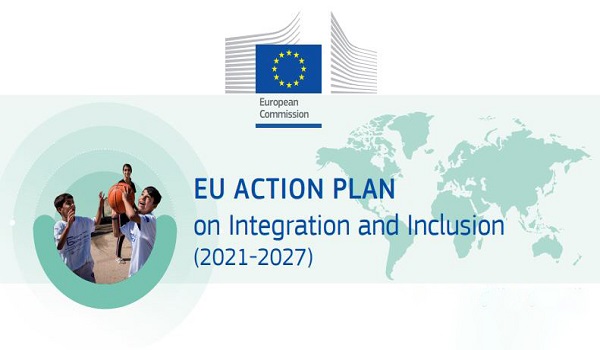On the 24 November 2020, the European Commission has released its new Action Plan on Integration and Inclusion, announced in its Communication for a New Pact on Migration and Asylum and preceded by an open consultation with stakeholders in integration.
The action plan replaces the Action Plan for Integration of third country nationals, approved in 2016 but ‘expired’ since mid-2018, and extends the duration of this new instrument to 7 years, with a mid-term review to be conducted at the end of 2024. In this way, the Commission aims at better aligning the framework with the next Multiannual Financial Framework (MFF) of the EU, which will run over the same years.
A stronger emphasis on synergies between different funding instruments concurring to integration objectives, should be also ensured by synchronising the two processes: by mixing these resources such as the European Social Fund Plus (ESF+), the Asylum, Migration and Integration Fund (AMIF), the European Fund for Regional Development and other funds such as the European Agricultural Fund for Rural Development and Erasmus+, the Commission aims at supporting investments along the whole integration pathway.
The action plan is designed to present a number of actions in the four main areas of employment, education, health and housing. Five cross-cutting areas of the action plan aim at supporting effective integration and inclusion in the four dimensions: Building strong partnerships for a more effective integration process, Increased opportunities for EU funding under the 2021-2027 Multi-annual Financial Framework, Fostering participation and encounters with the host society, Enhance the use of new technologies and digital tools for integration and inclusion, and Monitoring progress: towards an evidence-based integration and inclusion policy.
As integration is a primary competence of member states, the document does not enlist specific objectives for member states, however for each dimension of integration identified, detailed recommendations “encourages” member states to take actions for stepping up their integration and inclusion strategies.
Recognising the need for a broader approach to discrimination and racism, the action plan broadens its scope including actions also for EU citizens with a migrant background, to complement the recently launched EU anti-racism action plan 2020-2025..
For further information:
- European Commission, Assessment of the 2016 Commission Action Plan on the integration of third-country nationals, November 2020
- ECRE and PICUM, The Future EU Action Plan on Integration and Inclusion: Ensuring an Approach Inclusive of All, October 2020
This article appeared in the ECRE Weekly Bulletin. You can subscribe to the Weekly Bulletin here.

